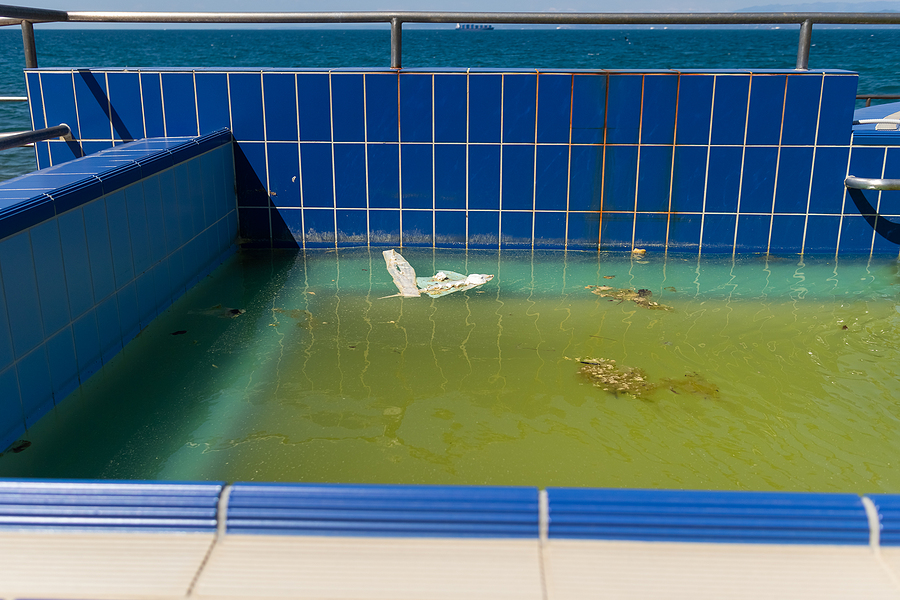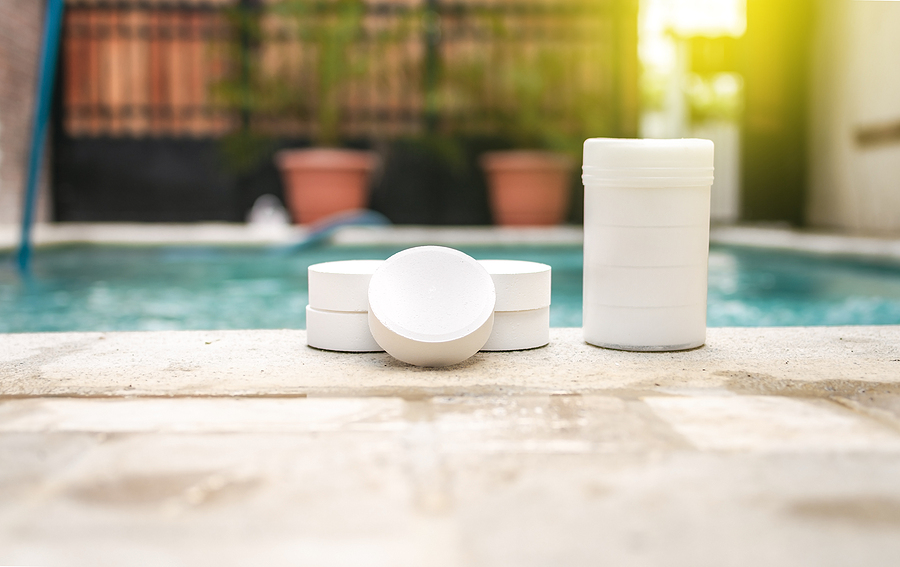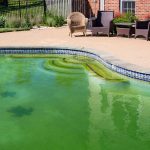Is Your Pool Phosphate Level High? Tips for Adjusting the Phosphate Level
As a pool owner, you want to keep your pool water safe for swimmers. Part of this responsibility includes understanding the calculated task of balancing water chemistry. If you don’t have a professional pool service maintaining your pool, you may not know how to handle a situation where your pool is green and cloudy. This may mean that your pool phosphate level is high, but don’t worry. Here is everything you need to know in order to get your swimming pool chemistry balanced again.
What Are Phosphates?
Phosphates are organic chemicals formed from phosphoric acid. You can find phosphates in lawn fertilizer, hair products, and organic matter such as twigs and leaves. In other words, when swimmers jump into the pool with hair and skin products applied or leaves are brushed into the pool by the breeze, phosphates can accumulate in your pool. Thankfully, phosphate levels don’t significantly affect a swimming pool’s safety levels. However, with a pool phosphate level high enough, algae may start to grow.

What Do Phosphates Do to Your Pool?
At levels above 1,000 ppb (parts per billion), phosphates can contribute to rapid algae growth. Algae feed off phosphates in pool water and after dying, release more phosphates into the water which feed new algae as a result. This is known as an “algae bloom”.”
With a pool phosphate level higher than 1,000 ppb, it becomes more difficult to kill the algae in your pool and balance the water chemistry. Your expenses may start to increase due to needing more concentrated and costly chemicals. Additionally, high phosphate levels use up chlorine quickly, making it even harder to keep your pool clean. For this reason, we recommend hiring a pool maintenance service to stay on top of your pool water before algae growth gets out of hand.
Testing for Phosphates and Algae
If you aren’t sure whether or not phosphates and algae are in your pool, you can use a testing kit. Most basic testing kits for chlorine and PH do not provide a way to test for high phosphates so you will need to purchase a separate kit. If you are unable to use a test kit, you may take a water sample and have it analyzed by a pool professional.
How to Remove Phosphates
If your pool phosphate level is higher than 1,000 ppb, there are chemicals that can lower the phosphate level. In most cases, you won’t need to address phosphate levels in your pool, especially if you prevent phosphates from building up in the first place. By keeping organic materials such as leaves and twigs out of your pool you can limit the number of phosphates released in your pool water. You can also empty the skimmer and pump baskets frequently, keep your filter clean, and vacuum dirt and debris regularly. All of these tasks are routinely performed by a professional pool service. They will follow the steps necessary to keep your pool clear and healthy for your swimmers.

Is Your Pool Phosphate Level High? Contact Pool Operation Management
The trained staff at Pool Operation Management will be able to prevent your pool from becoming green and cloudy. Regardless if you own a residential swimming pool or operate a commercial facility in NJ, our Certified Pool Operators will be able to successfully maintain your pool water. They will keep your pool water balanced, safe, and ready for swimmers at all times. For more information or any questions you may still have about pool phosphate levels, reach out to Pool Operation Management today.






